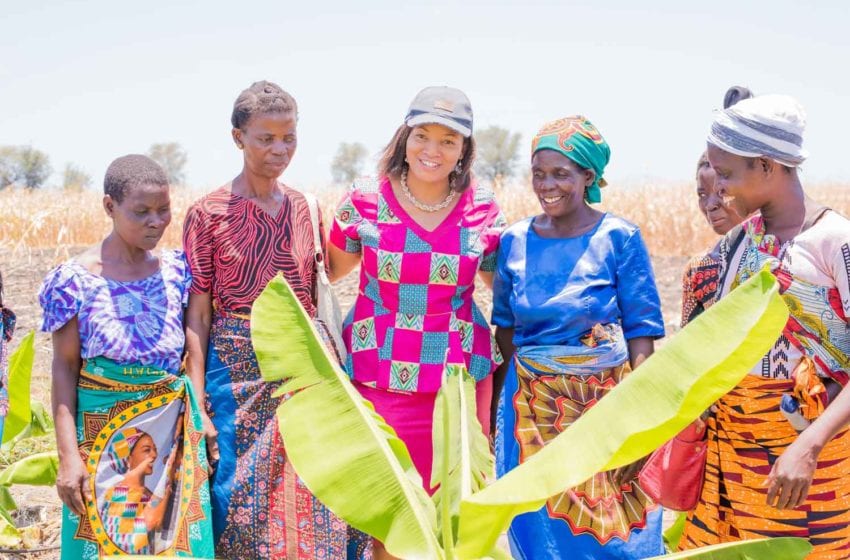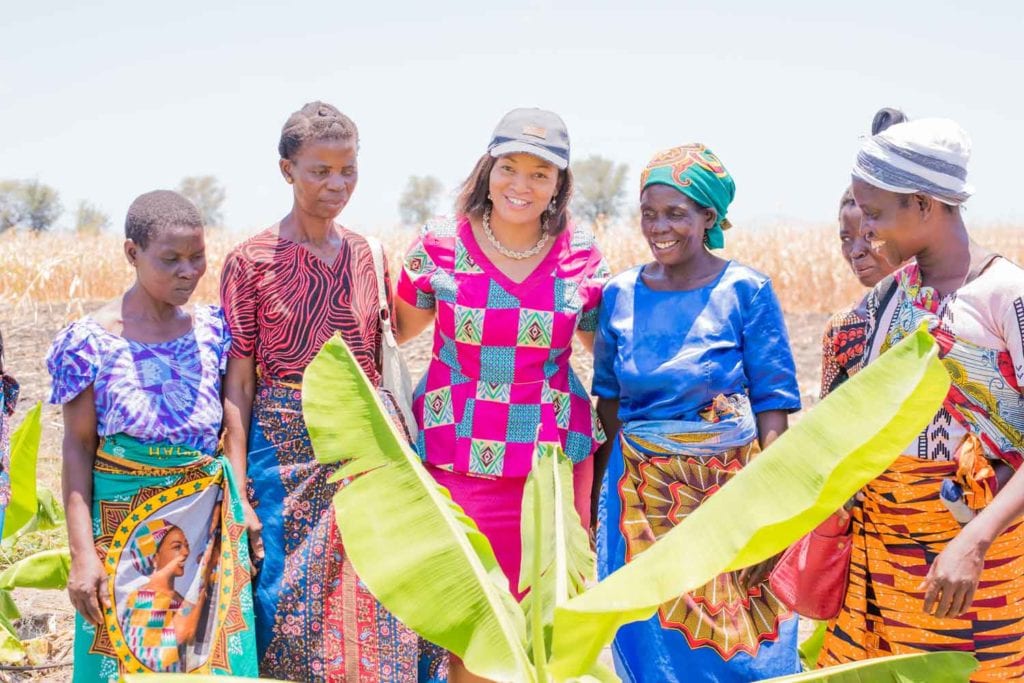
Bridging the gender gap will strengthen Malawi’s economy.
By Stefanie Rossel
Imagine you own a piece of land, but you are not free to decide what to grow on it. You do most of the farm work in your family, but you earn only a fraction of the income of your male partner. You lack basic reading and writing skills, and you cannot easily get a loan with the bank because you do not own assets that can be used as collateral. That’s the situation for many women in Malawi’s tobacco sector.
Women represent a little more than half of Malawi’s estimated 21.2 million people, but they provide more than 70 percent of agricultural labor in the country. Malawi is one of the poorest countries in the world, with a young, fast-growing population. Its economy is heavily based on agriculture, which contributes 90 percent of exports and represents 22 percent of gross domestic product (GDP). Productivity is below 40 percent of potential because there is limited access to modern technologies such as mechanization and irrigation as well as to competitive financing and competitive structured markets.
With tobacco accounting for 54 percent of merchandise exports in 2019 and about 15 percent of GDP according to Trendeconomy.com, landlocked Malawi is one of the world’s most tobacco-dependent economies. It is also the 11th largest tobacco producing country. Ninety-five percent of the tobacco grown in Malawi is burley, supplied mostly by smallholder farmers (80 percent). Of these, less than 10 percent are female. Tobacco marketing is managed through two systems—auction (20 percent) and contract farming (80 percent).
According to the United Nations, poverty is a gendered phenomenon in Malawi, with female-headed households disproportionately represented in the lowest quartile of income distribution. Most Malawian women working in tobacco cultivation do not own farms but work as farm laborers. “Tobacco is predominantly a man’s crop,” says Candida Nakhumwa, country director for Malawi at the Foundation for a Smoke-Free World (FSFW). “The man is the tobacco farmer. The woman and other family members just support him. It’s the man who is on the payroll, but in terms of the work on the ground, you find that the bulk of that is still performed by women. They are involved in terms of land preparation, planting, weeding and reaping of the tobacco or grading when they’ve harvested.”
In addition to their farm tasks, women spend time on childcare and household chores, such as preparing food, fetching water and collecting fuelwood. “While women are actively involved at every stage of tobacco production, they are rarely present at the marketing stage. Tobacco marketing is mainly handled by men,” Nakhumwa says. “As such, proceeds from tobacco cultivation and decisions on use of this money are mainly in the hands of the man. Even among the roughly 10 percent of women who are tobacco smallholder farmers themselves, you can still observe that when it comes to marketing of the crop, they still look for a male figure to support them.”
Because tobacco is a labor-intensive crop and most of the labor is supplied by the family members, farmers in some parts of Malawi marry a second or third wife to have more support. “The more family labor you have, the more advantage you have,” Nakhumwa points out. For the most part, education levels among female smallholder farmers are low, and that makes them more dependent on the husband, who is the bread winner.
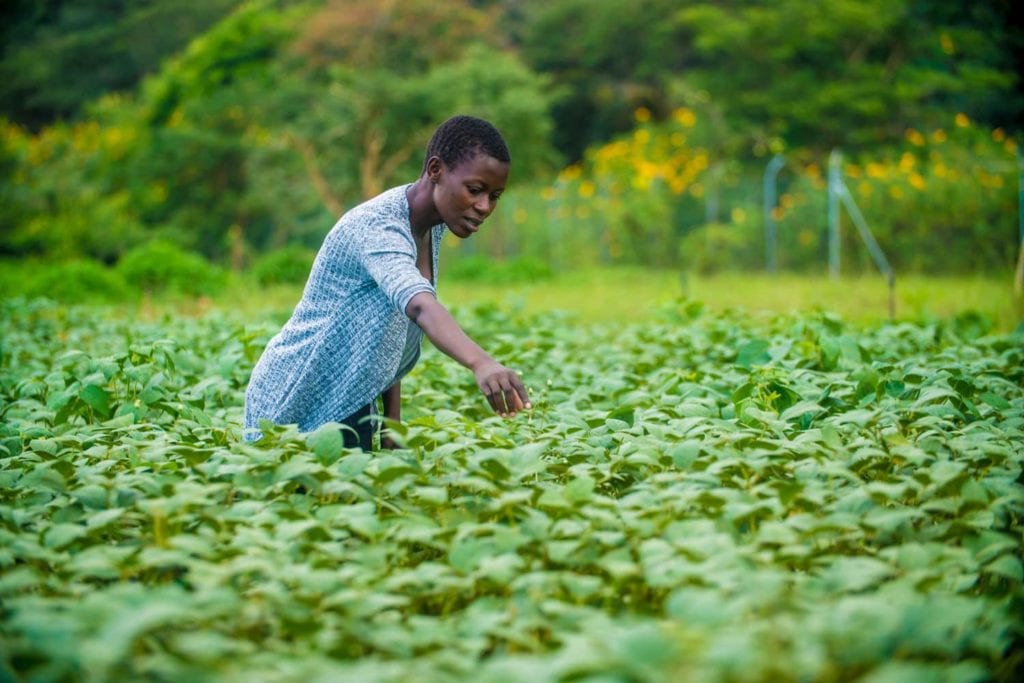
Backbone of Agriculture
Women take on a significant part of the farm work in most tobacco-growing countries. They represent about 43 percent of the global agricultural labor force and almost 50 percent in Sub-Saharan Africa, according to a 2011 U.N. Food and Agriculture report. A 2016 study commissioned by the Public Health Institute in Oakland, California, USA, looked at the role of women in tobacco farming in China, Kenya and Tanzania. In China, the world’s largest leaf-producing country, women spend 30 percent to 50 percent of their time in tobacco farming, according to the study. This amounts to six hours to eight hours per day on average and more than 16 hours during the harvesting season. Their husbands spend only 30 percent of their time in tobacco farming.
What’s more, female seasonal workers earned less than men, the study found. In Tanzania and Kenya, both women and men spend about 40 percent to 50 percent of their time on tobacco cultivation. Awareness of the health risks of tobacco cultivation was low in all three countries, and pregnant women were often working in the field.
In contrast to their African counterparts, however, most female tobacco farmers in China were decision-makers or joint decision-makers regarding farming activities and finances. Almost 55 percent of Chinese respondents, the study states, were the sole signatory to the contract with tobacco companies, with access to bank accounts and the payment from the tobacco companies. In Tanzania and Kenya, the situation was very different, according to the study authors.
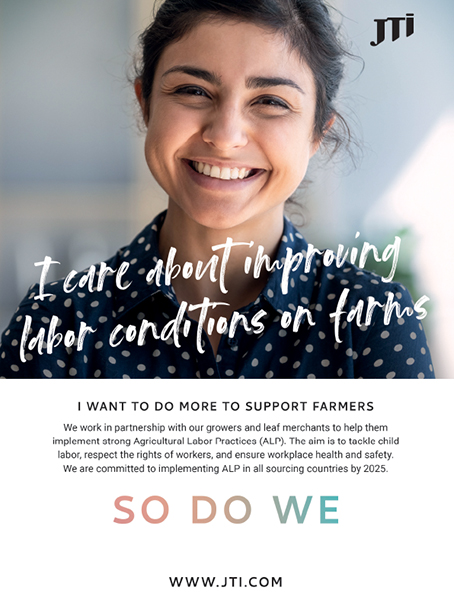
Substantial Disparity
In Malawi, women are mostly seasonal workers providing their labor to other farms. “These women may even own a small piece of land where they can grow other crops, such as maize, groundnuts or soybeans. But if they spend more time offering themselves as casual laborers, it compromises the amount of time they can invest on their own farms,” Says Nakhumwa. “Hence, these farmers tend to be food-insecure. They are not able to produce food that will last them from one harvest to another. So the food security dynamics for women are still a challenge.”
With an average of 6.6 family members, tobacco farmer households are larger than the national average, which stands at four family members, and this also influences the food availability of farmers’ households. Malawian farmers own far less land than their counterparts in Zambia and Mozambique. Coupled with low productivity among smallholders, tobacco cultivation does not guarantee a profit if the crop is grown on less than 0.75 ha. “This is not economically viable. The land women own is even smaller—that’s why they go out and offer their labor to other farmers,” says Nakhumwa.
Most of the smallholder land in Malawi is inherited. There are two types of inheritance. In the central region and southern regions, a matrilineal society prevails, so the inheritance is through the mother. The northern region has a patrilineal system, where inheritance is through the father. However, in the central region—the hub of tobacco growing—the married woman relocates to stay at the husband’s home. “In this situation, the woman cultivates land that belongs to her husband,” Nakhumwa says. “Therefore, these women do not control land nor other productive assets. In terms of decisions on how to make use of her land, she will still be looking up to a male figure. This could be her husband, but in most cases, it will be her uncle who is considered the owner of the clan.”
The fact that the women don’t control the land ends up affecting issues such as whether they are able to access financing from a commercial bank. “If you don’t own the land, it means you cannot present it as a collateral to access finance,” says Nakhumwa. “This also limits women in terms of which part of the value chain they participate in. Tobacco is a high-input crop, so if you cannot get access to financing for inputs, then it’s no longer your preferred crop, whereas for a man, because they are controlling the land, they can easily go to the bank and get a loan.”
Men are also the ones who negotiate the contracts with leaf companies because they benefit from larger land ownership than women. To be contracted, farmers need to demonstrate that they own enough land to be able to rotate tobacco with three other crops.
The pattern of women passing on responsibility to a male figure is deeply rooted. Families will dedicate their limited resources to the education of their male child, as he is expected to take on more responsibility over the woman he will marry, while the girl child is expected to get married and be taken care of by her husband. “This is also linked to a lot of school dropouts and early marriages among girls,” says Nakhumwa. “Around 10 percent of girls are married before the age of 15. Fifteen percent are married before the age of 18.” Laws against child marriages are in place, but enforcement is weak.
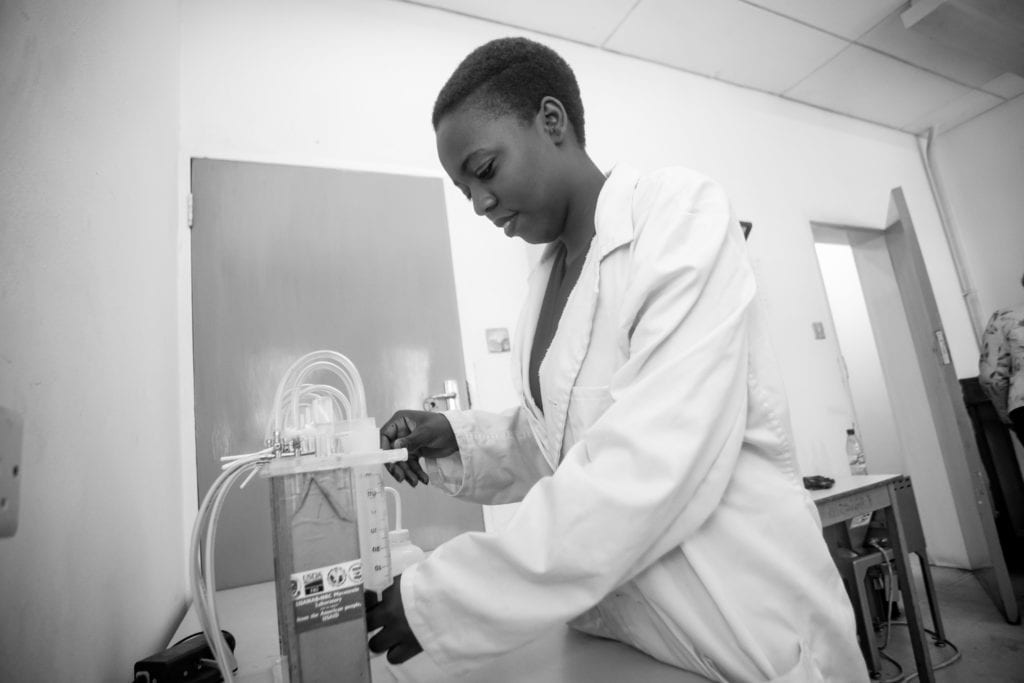
Long Way to Go
On the bright side, recognition of the hazards involved in tobacco growing, such as green leaf sickness, is improving, according to Nakhumwa. More leaf companies are working to create awareness about farm safety. “In a country where more than 80 percent of tobacco is contracted, more than 80 percent of farmers should get the message,” she says. “However, mostly male farmers take part in these awareness creation meetings, so it’s up to them to inform the women at home, but it’s not the extent to which this happens.”
While many leaf companies supply their farmers with protective gear, this is helpful only if enough equipment is provided for all farm workers rather than just for the men, Nakhumwa notes. “More needs to be done for women to understand the dangers of tobacco cultivation,” she says. Yet even if women know about the risks, they will likely continue working in tobacco fields because they have few alternatives, according to Nakhumwa.
Gender equality is one of the 17 U.N. Sustainable Development Goals (SDGs) supposed to be reached by 2030, which seems like an extremely ambitious target. Much work is needed to improve the situation of women working in Malawi’s tobacco sector. “The key priority is to provide women with increased opportunities and access to quality education,” says Nakhumwa. “If they attended school longer, their decisions would be different. They’d have access to other opportunities. Furthermore, we need to empower and enable women to have access and control over factors of production such as land and competitively priced finance, among others, to help them engage effectively in agriculture. If this happens, they can be involved in production and marketing of commodities other than tobacco.
“The third area is that women need to be empowered to be involved in nonfarm activities and in decision-making to reap the benefits of the labor they are putting in and get control over the money they have made. I think education and empowerment will help us close this gender gap and also deal with issues of population in which women play a big role.”
To close the gender gap, she continues, the men need to be taken along. “If this capacity building targets both the man and the woman to help them understand how much more they can do if they work as a unit, they might embrace that. I think men will be able to support women to be better off. In some communities, men and women are supported to have a joint vision for their families—if they don’t do that, you see that they are pulling in different directions. The man needs to understand that a woman is a critical player in this field and that he cannot leave her behind.”

Diversification is Key
Elected in June 2020, Malawi’s new government is committed to reducing the country’s dependence on tobacco. Its “Malawi Vision 2063” plan aims to turn Malawi into a wealthy, self-reliant nation. The country is also a signatory to the African Continental Free Trade Area Agreement (AfCFTA), which is estimated to boost intra-African trade by 52 percent by 2022.
“For Malawi to be successful in this, our agricultural exports need to be competitive and prioritize value addition,” Nakhumwa explains. “Otherwise, we may be the losers and fail to exploit the 1.3 billion population AfCFTA market. Further, the total value of food imports in Malawi has more than doubled between 1998 and 2020. These imports mostly consist of products from crops that the country produces itself, which is cereals and oil seeds. This demonstrates the readily available domestic market and points to some of the things we have to focus on as part of an import substitution strategy.”
To support the country in its transition toward a more sustainable, diverse agriculture sector, the FSFW awarded a grant to a consortium led by Land O’Lakes Venture 37 to set up and manage the Centre for Agricultural Transformation (CAT) in Malawi in 2019. The CAT addresses an objective of Article 17 of the Framework Convention on Tobacco Control to assist tobacco farmers in the development of alternative livelihoods. The CAT includes several initiatives such as the science, technology, innovation (STI) program and business and incubation cohort (BIC), both of which will help smallholder Malawian farmers make economically viable, data-driven decisions for diversifying their livelihoods. The center facilitates the development of new technologies, partnerships and income opportunities to help farmers achieve greater economic success in the coming years, with a special focus on women and youth. Numerous programs under the CAT are dedicated to encouraging women and youths to engage in agriculture, link up farmers to markets to sell their produce at competitive prices or training them on vital entrepreneurship.
In addition, through a policy program led by Michigan State University, FSFW is supporting targeted policy reforms while also working closely with Malawi’s National Planning Committee. Michigan State University has also supported the establishment of the Malawi Agriculture Policy Advancement and Transformation Agenda Institute. Institutions play an important role in helping women to develop a vision of what they want to do and where they want to be. Policies have been aligned accordingly, Nakhumwa says. “What we have to do as development partners is to ensure that we generate evidence that supports these policies so that governments recognize that if they change certain aspects in existing policies, women will benefit. There is need for legal review to ensure that all policy and legal instruments are tailor-made to support equality between men and women.”
FSFW is also contributing toward human capital development efforts to strengthen the capacity of researchers and professionals, both men and women, in high-priority fields that will help the country transform its agricultural sector. Scholarships have also been awarded to candidates based in Malawi who are pursuing their master’s degrees and doctoral degrees and advancing their postdoctoral research in agriculture, business, data science, economics, ecology/environment and engineering. This effort is in addition to institutional capacity building and business incubation support offered through the CAT and policy programs.
Nakhumwa says that diversification will be good because other commodities will allow women to participate in production and marketing. However, she notes, women will benefit from diversification only if certain conditions are met. “To support farmers, we need to enhance access to improved technologies for women so that they can experience increased productivity in production of the crops or livestock they will be producing. If they continue to produce at low productivity, the women will still fall behind.
“We also need to help the woman to access competitively priced finance so that when she goes to the farm, she will be able to invest the required amounts of inputs and produce the volumes and quality that she can take to the market. Through the STI and BIC pillars of the CAT, tailor-made programs have been launched for women to learn about and access improved agricultural technologies and capital as well as develop necessary technical and entrepreneurship skills to grow their businesses. Focus on women and youth is at both the enterprise level—women and youth-led agri-enterprises—and the business model level, with emphasis on women and youth inclusion.”
Other important factors include investing in labor-saving technologies as well as ensuring that women get access to structured and competitive markets as well as control over land. Nakhumwa emphasizes that to benefit from diversification, the woman needs to be empowered to upgrade in the value chain.
“Instead of being laborers only, women need to be supported to own strategic factors of production and begin to add value to what they are producing to maximize the value they earn from their efforts. I also believe that when these women farmers are organized in groups, they can benefit from economies of scale. They can easily be taught new technologies and management practices. Finally, we need to deal with cultural barriers that exist so that even in these new commodities, the woman is treated like an equally important partner.”



